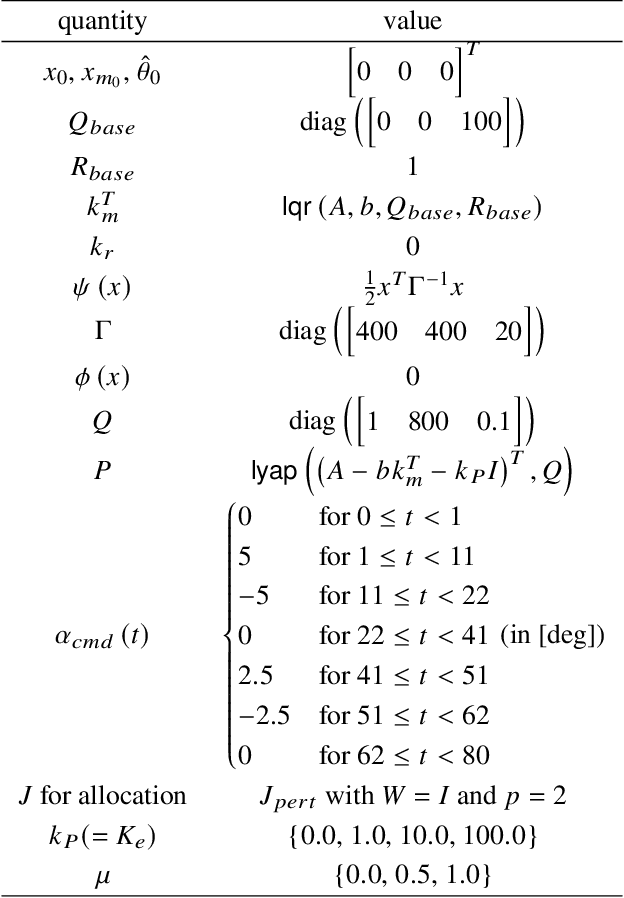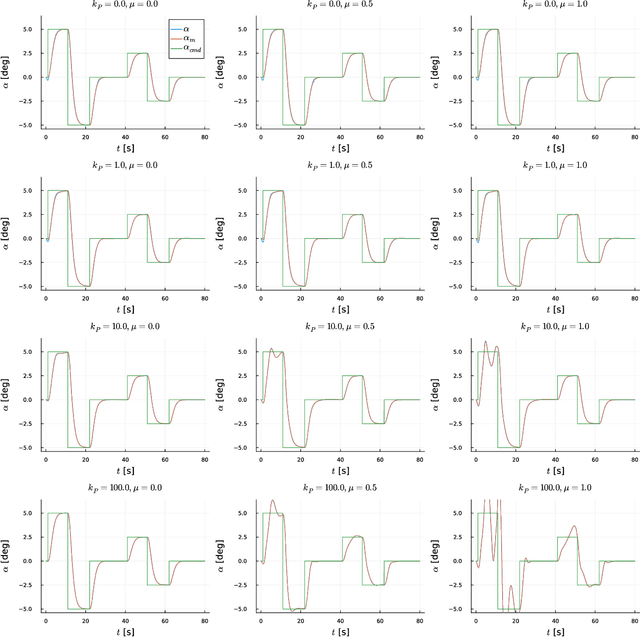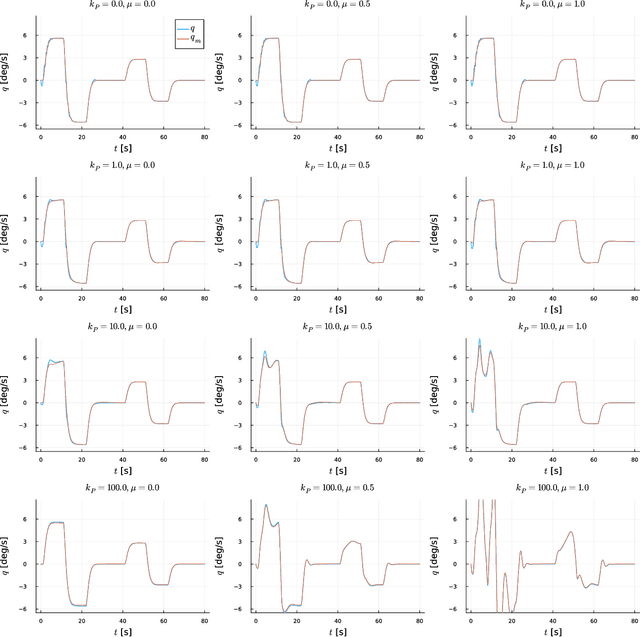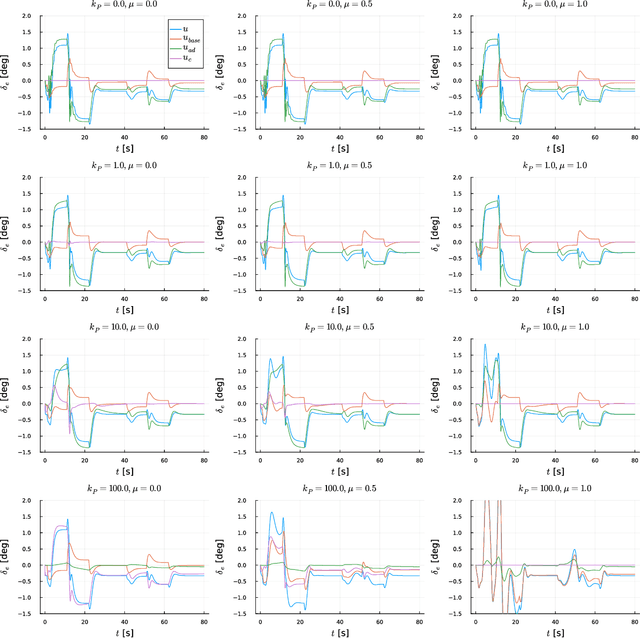Seokwon Lee
Synchronisation-Oriented Design Approach for Adaptive Control
Mar 14, 2024



Abstract:This study presents a synchronisation-oriented perspective towards adaptive control which views model-referenced adaptation as synchronisation between actual and virtual dynamic systems. In the context of adaptation, model reference adaptive control methods make the state response of the actual plant follow a reference model. In the context of synchronisation, consensus methods involving diffusive coupling induce a collective behaviour across multiple agents. We draw from the understanding about the two time-scale nature of synchronisation motivated by the study of blended dynamics. The synchronisation-oriented approach consists in the design of a coupling input to achieve desired closed-loop error dynamics followed by the input allocation process to shape the collective behaviour. We suggest that synchronisation can be a reasonable design principle allowing a more holistic and systematic approach to the design of adaptive control systems for improved transient characteristics. Most notably, the proposed approach enables not only constructive derivation but also substantial generalisation of the previously developed closed-loop reference model adaptive control method. Practical significance of the proposed generalisation lies at the capability to improve the transient response characteristics and mitigate the unwanted peaking phenomenon at the same time.
Bayesian Learning Approach to Model Predictive Control
Mar 11, 2022Abstract:This study presents a Bayesian learning perspective towards model predictive control algorithms. High-level frameworks have been developed separately in the earlier studies on Bayesian learning and sampling-based model predictive control. On one hand, the Bayesian learning rule provides a general framework capable of generating various machine learning algorithms as special instances. On the other hand, the dynamic mirror descent model predictive control framework is capable of diversifying sample-rollout-based control algorithms. However, connections between the two frameworks have still not been fully appreciated in the context of stochastic optimal control. This study combines the Bayesian learning rule point of view into the model predictive control setting by taking inspirations from the view of understanding model predictive controller as an online learner. The selection of posterior class and natural gradient approximation for the variational formulation governs diversification of model predictive control algorithms in the Bayesian learning approach to model predictive control. This alternative viewpoint complements the dynamic mirror descent framework through streamlining the explanation of design choices.
 Add to Chrome
Add to Chrome Add to Firefox
Add to Firefox Add to Edge
Add to Edge